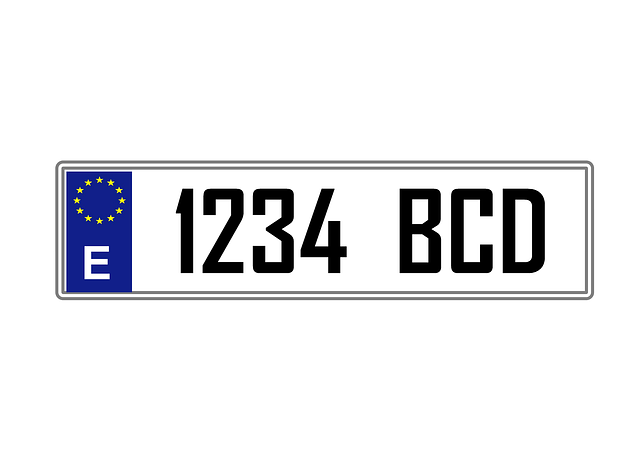DMV fees for commercial vehicles vary based on weight, capacity, and use, with businesses facing higher rates than personal vehicle owners due to extra wear and tear. Recent changes in Colorado introduce weight-based fee structures, stricter inspections, and maintenance records requirements, impacting fleet operations across multiple states. Businesses must proactively stay informed, review updated fee structures, and strategize for increased costs through budget allocation or fleet optimization. Adopting specialized software solutions can simplify the registration process, track vehicle maintenance, ensure proper documentation, and maintain compliance with DMV regulations.
Commercial vehicle owners face distinct challenges when it comes to DMV registration, marked by higher fees and stringent requirements. These costs are designed to account for the wear and tear heavier vehicles impose on public roads. Recent changes, like those in Colorado, aim to modernize these systems. However, understanding the implications of weight-based fee structures is crucial for businesses to prepare for upcoming registration and renewal processes. This article will guide you through the intricacies of DMV fees for commercial vehicles, focusing on Colorado’s recent shifts, and offer essential insights for efficient fleet management.
- Understanding DMV Fees for Commercial Vehicles
- The Impact of Weight-Based Fee Structures
- Colorado's Recent Changes: What Businesses Need to Know
- Preparing for Vehicle Registration and Renewal
- Navigating Additional Requirements for Fleet Management
Understanding DMV Fees for Commercial Vehicles

DMV fees for commercial vehicles are designed to reflect the additional wear and tear these larger, heavier machines impose on public roads. This means that while personal vehicle registration costs might be relatively standard, businesses owning fleets of trucks, vans, or other commercial cars often face higher rates. These fees can include not just initial registration but also annual renewals, which may come with extra requirements like safety inspections, emissions testing, and proof of insurance.
Each state has its own classification system for vehicles based on factors like weight, capacity, and intended use. This classification directly influences the fee structure, so businesses operating in multiple states must be aware of these variations. Changes to DMV fees, as seen recently in Colorado, underscore the importance for business owners to stay informed about local regulations to avoid unexpected financial burdens and ensure their fleet remains up-to-code.
The Impact of Weight-Based Fee Structures

The introduction of weight-based fee structures by DMVs, such as in Colorado, has significant implications for everyday businesses relying on commercial vehicles. This new approach to vehicle registration and fees ensures that costs are aligned with the wear and tear heavier vehicles impose on public roads. For fleet owners, this means a direct correlation between the size and weight of their vehicles and the annual registration expenses they incur. While it promotes fairness by holding larger vehicles accountable for road maintenance, it presents a financial challenge for businesses operating smaller but heavier fleets who may experience substantial increases in costs without a corresponding improvement in road conditions.
These changes necessitate a proactive approach from businesses to stay informed and prepared. Fleet managers should carefully review the updated fee structures and consider the financial impact on their operations. Strategizing for these increased costs, whether through budget allocation or fleet optimization, becomes essential to ensure smooth business continuity. By staying ahead of these regulatory shifts, businesses can better navigate the challenges posed by weight-based fee structures and maintain their competitive edge in today’s dynamic market.
Colorado's Recent Changes: What Businesses Need to Know

Colorado has recently implemented changes to its DMV fees for heavier vehicles, reflecting a broader trend across states to better account for the wear and tear that commercial fleets cause on public roads. These adjustments are designed to ensure fairer funding for road maintenance and infrastructure. For businesses operating within Colorado or planning to expand there, understanding these new regulations is essential.
The changes include increased registration fees for larger vehicles based on their weight and environmental emissions standards. Additionally, specific requirements for safety inspections and vehicle maintenance records may apply, with more frequent checks mandated for older or high-mileage vehicles. Businesses must ensure compliance with these new standards to avoid penalties and maintain smooth operations.
Preparing for Vehicle Registration and Renewal

Preparing for vehicle registration and renewal can be a complex process, especially for businesses with large fleets. It’s essential to stay organized and proactive to avoid unexpected delays or fines. Begin by gathering all necessary documents, including proof of insurance, vehicle inspection reports, and any required forms from your state’s DMV. Create a schedule well in advance of the expiration date to ensure you have ample time to complete each step.
Next, review the specific requirements for your commercial vehicles, as these can vary based on weight, type, and use. Stay informed about any changes in regulations or fees by subscribing to official updates from your state’s DMV. This proactive approach will not only make the registration process smoother but also help you budget effectively for the upcoming year.
Navigating Additional Requirements for Fleet Management

Navigating the additional requirements for fleet management can be a complex task, especially when it comes to commercial vehicle registration with the DMV. Beyond basic fee structures, businesses must adhere to stringent guidelines related to safety inspections, emissions standards, and driver licensing. These regulations vary across states, making it crucial for fleet managers to stay informed about local laws. Failure to comply can result in hefty fines or even legal repercussions.
To streamline this process, many companies invest in specialized software solutions that track vehicle maintenance, monitor regulatory changes, and ensure proper documentation. By embracing these tools, businesses can efficiently manage their fleets, avoid unnecessary delays during registration renewals, and maintain adherence to evolving DMV requirements.
In the dynamic landscape of commercial vehicle ownership, understanding and adapting to evolving DMV fee structures is paramount. The recent changes in states like Colorado highlight the importance of staying informed about weight-based fees and their impact on business operations. By embracing proactive measures during registration and renewal processes, fleet managers can ensure compliance with regulations and optimize costs. This article equips readers with crucial insights to navigate these complexities, fostering a more efficient and prepared approach to vehicle management in today’s ever-changing regulatory environment.



